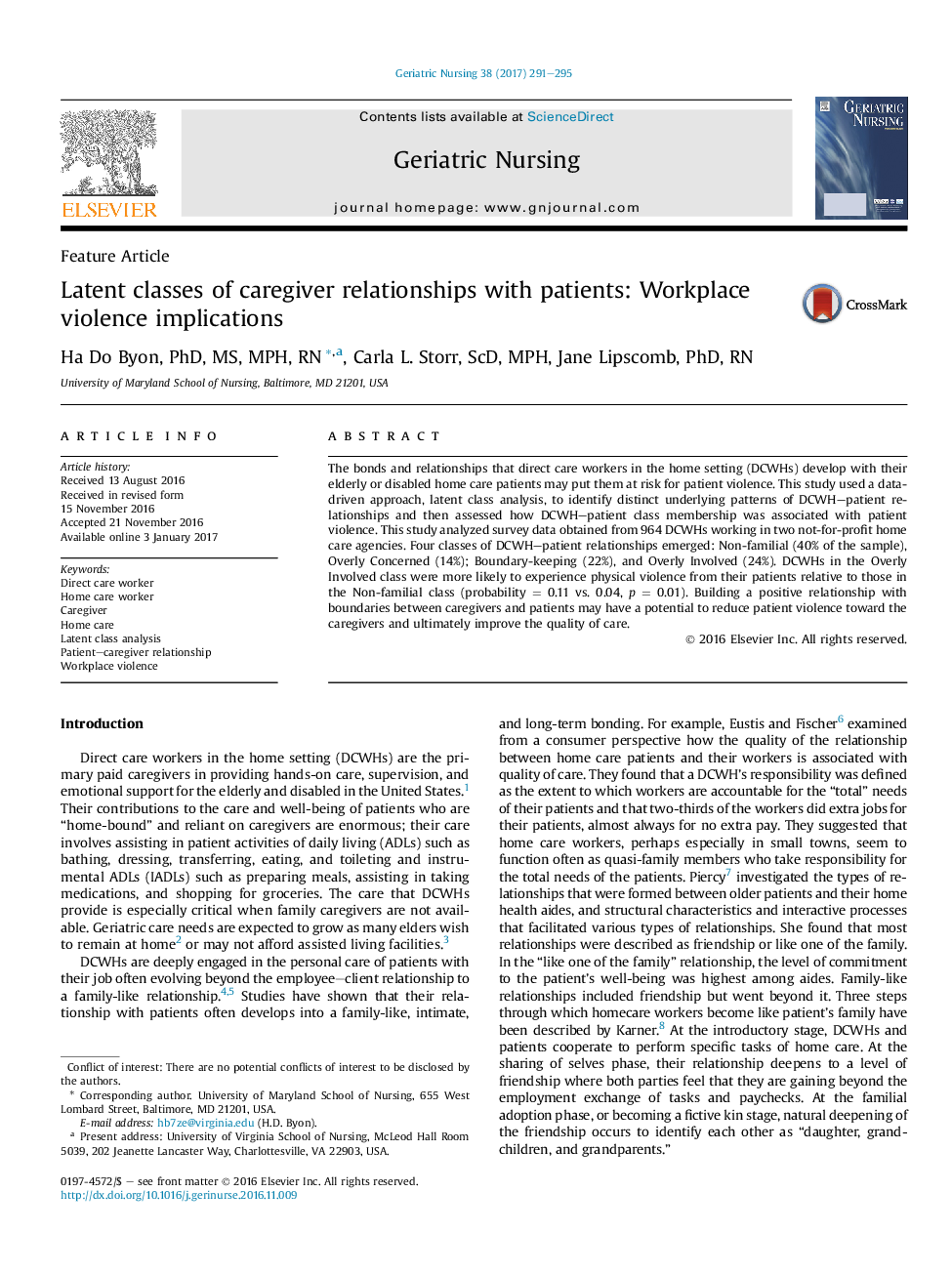| Article ID | Journal | Published Year | Pages | File Type |
|---|---|---|---|---|
| 5567846 | Geriatric Nursing | 2017 | 5 Pages |
The bonds and relationships that direct care workers in the home setting (DCWHs) develop with their elderly or disabled home care patients may put them at risk for patient violence. This study used a data-driven approach, latent class analysis, to identify distinct underlying patterns of DCWH-patient relationships and then assessed how DCWH-patient class membership was associated with patient violence. This study analyzed survey data obtained from 964 DCWHs working in two not-for-profit home care agencies. Four classes of DCWH-patient relationships emerged: Non-familial (40% of the sample), Overly Concerned (14%); Boundary-keeping (22%), and Overly Involved (24%). DCWHs in the Overly Involved class were more likely to experience physical violence from their patients relative to those in the Non-familial class (probability = 0.11 vs. 0.04, p = 0.01). Building a positive relationship with boundaries between caregivers and patients may have a potential to reduce patient violence toward the caregivers and ultimately improve the quality of care.
